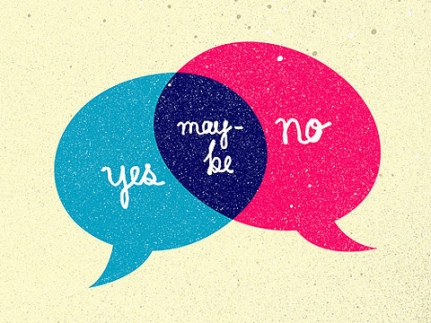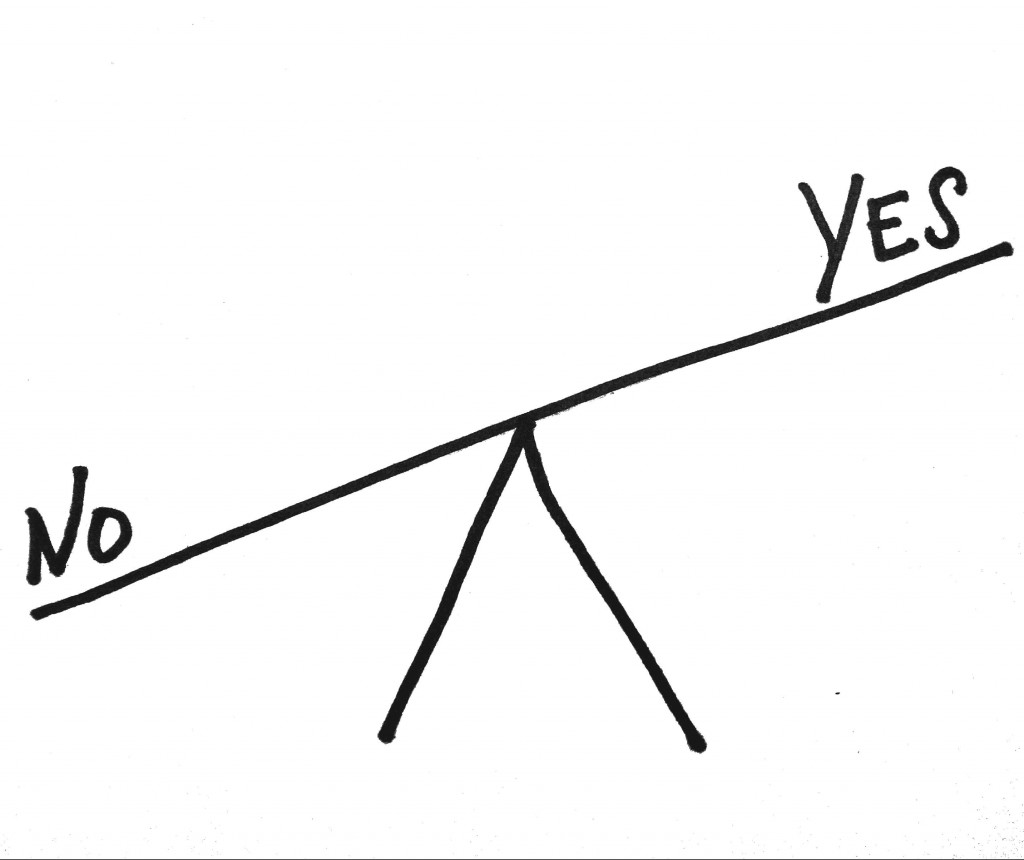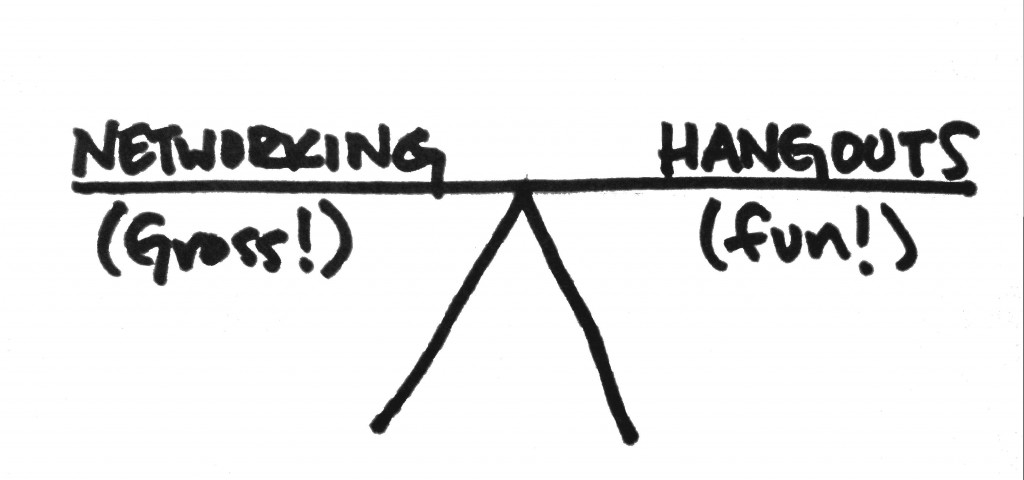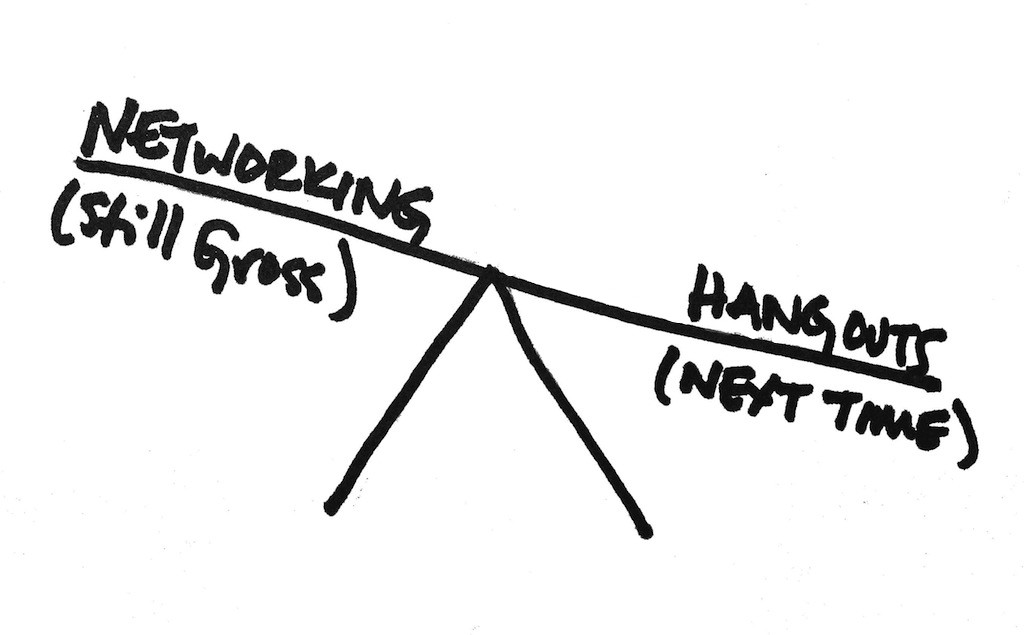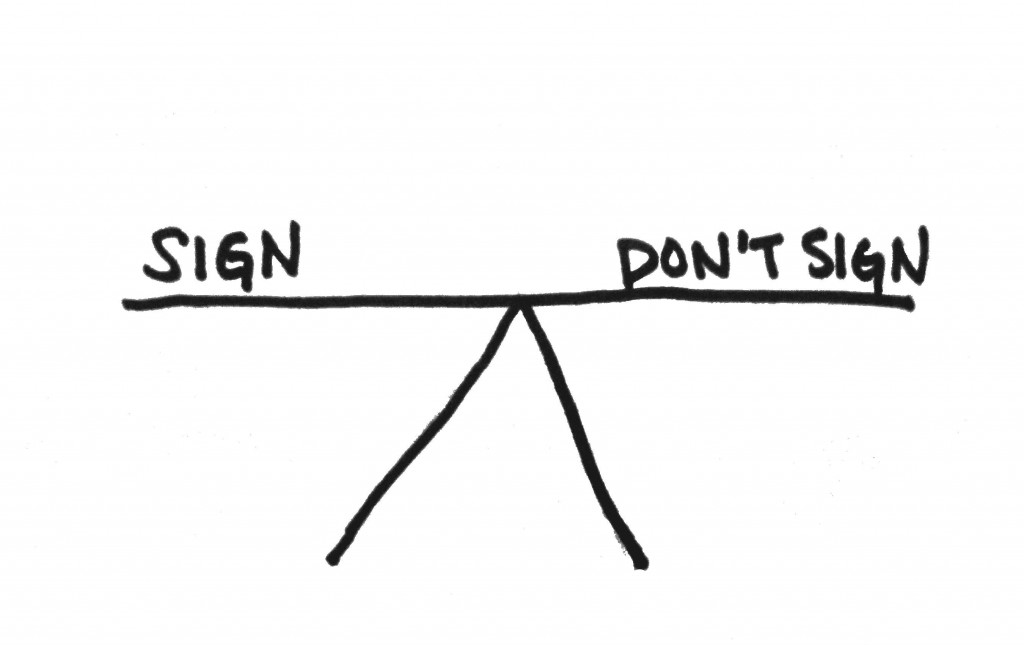Finding the “Yes” In Your “No”
Do you have a hard time saying “No”?
Even when you really, really want to say “No”?
Even when you know in your gut that saying “No” is the right thing to do?
You, friend, are not alone.
“No” is one of the best tools a freelancer has to protect herself and make sure she’s in control of her career.
“No” can help you avoid getting distracted by gigs that don’t serve your goals or that make you feel trapped.
Better yet, “No” can protect what you care about from being misused or abused.
And you can read 492 articles that expound upon the great power of “No,” nodding your head in agreement with each and every one, and it can still be hard and frightening to say, “No,” when a client is asking you for something you don’t want to, or can’t, do.
That’s why it is so important to remember that every “no” is connected to a “yes.”
Every time you say “No” to a request, you are saying, “Yes” to something else.
“No” to a low paying job is “Yes” to your value as an artist or freelancer.
“No” to a client’s outrageous demand is “Yes” to your professionalism and self-respect.
“No” to a volunteer project you honestly don’t have time for is “Yes” to time necessary to relax and rejuvenate so you have the mental and physical energy to do all the other things you’ve said, “Yes” to.
Saying “No” to a client or colleague can be difficult and intimidating when your focus is trained on the negative implications of the “No.” By giving equal attention to the positive things that can come from your “No” you allow yourself to consciously decide if agreeing to do the thing you do not want to do makes sense.
How goes finding the “Yes” in your “No” work?
Let’s say you’re a young designer trying to decide between spending your evening at a well-regarded but intimidating networking function, or meeting your friends for a drink.
Your decision see-saw looks like this:
Networking is intimidating and you hate small talk. Hanging out with your friends is genuinely delightful and promises to be a good time.
But networking is saying “yes” to your fledgling career and you need more work to pay the bills.
Hanging out with friends is saying “yes” to what you did last night.
Networking needs to be your “Yes” tonight. Say “No” to your friends.
Because even though networking doesn’t sound like fun, it’s the thing that serves your goals best.
This see-saw approach can help in high stakes situations, too.
Let’s say you’re looking at a contract from a client you’ve been wanting to work with for a long time. The contract isn’t the worst you’ve seen, but it’s also not the best.
You asked for two key changes to the contract: 50% deposit due at signing, and that the rights to what you create don’t transfer to the client until the job is done.
They’ve said “No” to both.
Do you sign the contract?
Well, that’s going to depend on your goals.
Working with this client is something you’ve wanted to do for a long time; why? What does this client help you do? What goals does working with this client help you achieve?
Getting a deposit and controlling the rights are important terms for you; why? Have you had experiences where not having these terms has been harmful? Do you have enough cash on hand that if this client doesn’t pay you for a while you’ll be OK?
If the client is more important to you than the security of the terms, you might very well sign. If the security of knowing you’ll get paid outweighs the benefit of working with this particular client, you probably won’t.
Your goals will help you uncover the “Yes” that is tied to the “No.” And that “Yes” can help move you closer to achieving your goals.
Saying “No” to one thing means saying “Yes” to something else. Next time you get tied up about saying “No,” step back and figure out what you’re saying “Yes” to. Recognizing the connection can make it a lot easier to stick with your decision, even when pressured.
For some great advice on learning how to say “No” when you need to, check out The Power of a Positive No By William Ury from your favorite library or bookstore.
Categories: Self Awareness Tools

